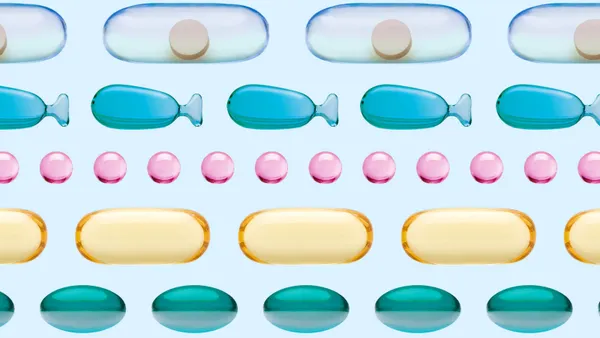Dive Brief:
- All doses of tirzepatide, the drug Eli Lilly sells as Zepbound for obesity and Mounjaro for diabetes, are now available in the U.S. after months of shortages made the in-demand medicine hard to obtain.
- Two dose strengths of Zepbound and another two of Mounjaro had been listed in short supply on a database maintained by the Food and Drug Administration as recently as early last week, before the agency updated the drug’s status to available on Friday.
- Lilly reports second quarter earnings on Thursday, when sales and supply of tirzepatide are likely to be the main focus of analyst questions. The company in April raised its financial forecasts for the year by $2 billion due to revenue growth for Zepbound and Mounjaro, which together brought in $2.3 billion between January and March.
Dive Insight:
Lilly has been pouring money into expanding its manufacturing capacity for tirzepatide by opening production at more of its existing facilities, buying factories and building new ones. Still, it hasn’t been able to make tirzepatide fast enough, as demand for the drug and Novo Nordisk’s rival medicines Ozempic and Wegovy soared.
But, at least by the FDA’s accounting, Lilly now appears to have caught up. By contrast, three starter doses of Wegovy are still listed as having limited availability, with the estimated duration of shortage “to be determined."
The restored supply of Zepbound and Mounjaro could impact some telemedicine companies that have been selling unbranded tirzepatide sourced from compounding pharmacies at lower cost. While Zepbound and Mounjaro are patent protected, compounding pharmacies are allowed in certain cases to produce drugs that are in shortage.
“All doses of Mounjaro and Zepbound are available. When FDA-approved medicines are commercially available, compounding pharmacies cannot make ‘essentially a copy’ of them,” Lilly said in an emailed statement to BioPharma Dive.
The shortage has also contributed to the proliferation of counterfeit or adulterated tirzepatide, which Lilly, the FDA and the World Health Organization have warned consumers to avoid.














